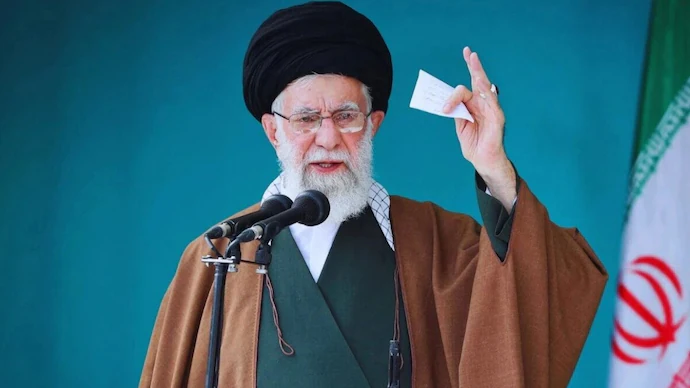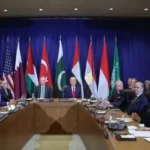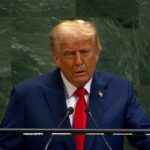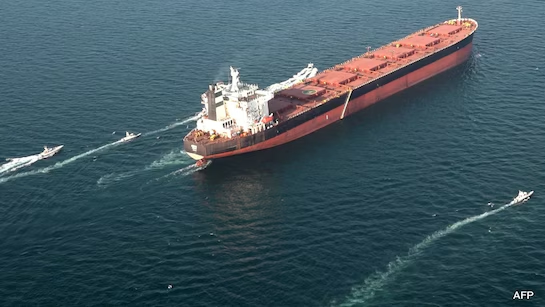Iran’s Supreme Leader Ayatollah Ali Khamenei declared on Tuesday that Tehran would never abandon uranium enrichment, dismissing mounting international pressure and calling negotiations with the United States a “dead end.”
In a televised address, Khamenei said Washington had long demanded that Iran give up enrichment but insisted the Islamic Republic would not yield. “The American side has been adamant that Iran must not have enrichment,” he said. “We did not surrender and we will not. We did not and will not yield to pressure in this matter or any other matter.” He argued that talks with the US would bring no benefit and could even inflict “irreparable harm” on Iran.
The remarks come as European powers press to reimpose UN sanctions on Tehran over its nuclear program. On the sidelines of the UN General Assembly in New York, Iran’s Foreign Minister Abbas Araghchi met his counterparts from Germany, France, and the UK, along with EU foreign policy chief Kaja Kallas. However, diplomats reported no progress.
“Iran must never obtain a nuclear weapon,” German Foreign Minister Johann Wadephul said ahead of the meeting, warning that prospects for a deal before sanctions snap back were “slim.” Tehran denounced the sanctions as “unjustified and illegal” but said consultations with European counterparts would continue. Unless an agreement is reached by Saturday, suspended UN sanctions are expected to be reinstated under the 2015 nuclear deal’s “snapback” mechanism.
Khamenei, in his address, invoked the breakdown of the 2015 nuclear deal, known as the Joint Comprehensive Plan of Action (JCPOA), which Washington abandoned in 2018 under Trump’s first term. He accused the US of consistently breaking promises, deceiving Iran, and resorting to military threats. “One cannot negotiate with such a party. Negotiations with the United States on the nuclear issue, and perhaps on other issues as well, are a complete dead end,” he said.
European and American officials suspect Iran of seeking nuclear weapons capability, though Tehran insists its program is for civilian purposes. Those suspicions deepened following Israeli airstrikes in June against Iranian nuclear facilities, supported by US warplanes at Trump’s orders. The strikes intensified Western fears of escalation and hardened demands for stricter monitoring of Iran’s activities.
In his UN address, Trump boasted that the US military had “totally obliterated” Iranian nuclear sites during the summer campaign. “The world’s number-one sponsor of terror can never be allowed to possess the most dangerous weapon,” he told the Assembly.
European powers have laid down three conditions for extending sanction relief: immediate resumption of direct negotiations without preconditions, full and unrestricted access for International Atomic Energy Agency (IAEA) inspectors to Iranian facilities, and complete transparency on the location and quantity of enriched uranium. Diplomats argue Iran has met none of these criteria.
Tehran, meanwhile, accuses Europe of bowing to political pressure from Washington and insists it has submitted a “balanced” proposal, though details have not been made public. IAEA chief Rafael Grossi confirmed that US envoy Steve Witkoff was exploring indirect communication channels with Tehran but declined to provide specifics.
With the deadline for renewed sanctions approaching, the standoff underscores the fragile state of nuclear diplomacy. Khamenei’s uncompromising stance, combined with Western distrust and Israel’s military pressure, leaves little room for compromise and raises fears of a prolonged escalation in the region.












Leave a comment